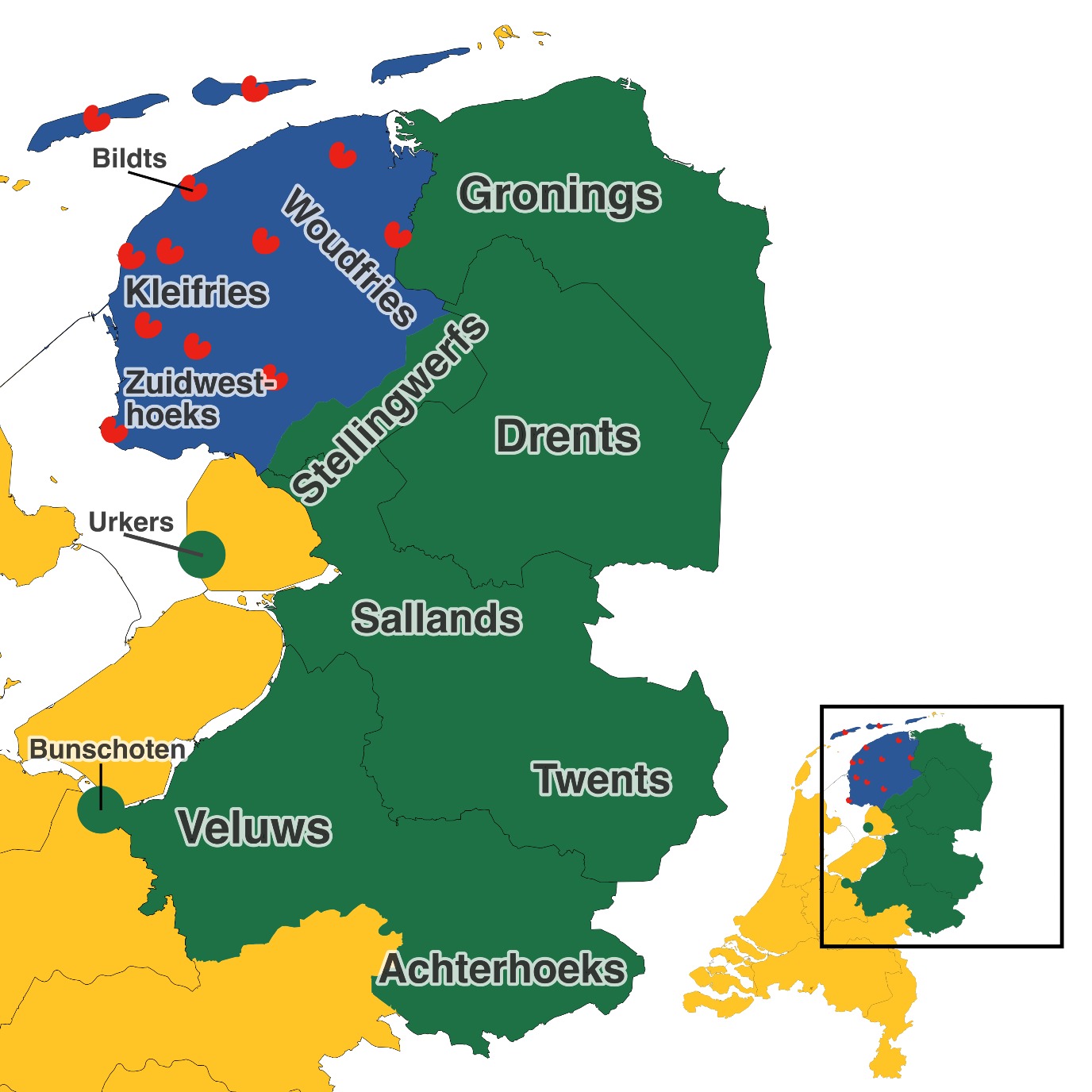Friese taal wordt beter doorgegeven dan het Nedersaksisch

Het is beter gesteld met het Fries dan met het Nedersaksisch. Friezen gebruiken de taal vaker thuis en geven deze beter door dan bewoners in het Nedersaksisch taalgebied. Ook vermengt het Fries minder met het Nederlands dan het Nedersaksisch. Dit concludeert promovendus Raoul Buurke in zijn proefschrift ‘Frisian and Low Saxon in flux’, waarin hij de staat van deze twee talen in de afgelopen decennia onderzocht. Hij promoveert op 13 februari aan de Rijksuniversiteit Groningen. Zijn promotieproject werd uitgevoerd in samenwerking met Centrum Groninger Taal en Cultuur.
Buurke ziet tegelijkertijd ook veel lichtpunten voor beide streektalen: 'Er is momenteel veel interesse in streektalen vanuit de Nederlandse bevolking en overheid. Er wordt ook geïnvesteerd in taal- en spraaktechnologie voor deze talen. En taalvariatie wordt een vast onderdeel van het curriculum van het schoolvak Nederlands.'
Aanzienlijk meer sprekers van het Fries
Er zijn veel meer recente taaltellingen voor het Fries dan het Nedersaksisch. Daarom hebben Buurke en zijn collega’s aan de hand van een vragenlijst, die via Lifelines is uitgezet, geschat hoeveel mensen het Fries of Nedersaksisch gebruiken in het Noorden. Buurke: 'Op basis van 38.500 respondenten is gebleken dat ongeveer 48% van de bevolking in Friesland het Fries thuis gebruikt, terwijl maar 17% van de bevolking in Groningen en Drenthe het Nedersaksisch thuis gebruikt.'
Verder geeft consistent rond de 70% van Fries-sprekende ouders het Fries door, terwijl het doorgeefpercentage van Nedersaksisch-sprekende ouders in een periode van 40 jaar sterk gedaald is: van ongeveer 50% voor kinderen geboren rond 1960 naar 30% voor kinderen geboren aan het begin van de 21e eeuw.
Vernederlandsing in het Nedersaksisch
Nedersaksische streektalen beginnen steeds meer kenmerken van het Nederlands te lenen. Buurke: 'Een bekend voorbeeld van vernederlandsing in het Gronings is ‘schoatsen’, wat veel meer op ‘schaatsen’ lijkt dan het vroegere ‘scheuveln’. Tegelijkertijd lijkt de vertaling van het Nederlandse woord ‘trein’ tegenwoordig vaker op iets als ‘troin’ in plaats van het vroegere ‘train’. Er zijn dus ook taalveranderingen die de taal juist minder op het Nederlands laten lijken.'
Tekst gaat verder na afbeelding

Friese varianten lijken meer op elkaar
Ook blijkt uit Buurkes onderzoek dat de verschillende Friese varianten meer op elkaar zijn gaan lijken, maar niet op het Nederlands. Een vergelijkbaar patroon werd gevonden voor Groningse varianten, al zijn deze varianten juist wèl meer op het Nederlands gaan lijken. Voor de andere Nedersaksische varianten zijn de lokale verschillen juist groter geworden. Buurke vermoedt dat dit komt doordat steeds minder mensen de streektaal via hun ouders leren en eerder van verschillende mensen in de omgeving. Hierdoor leren ze waarschijnlijk minder consistente uitspraakpatronen aan, waarvoor ook recentelijk bewijs is gevonden onder Brabantse streektaalsprekers.
Behoud van de streektaal
Buurke: 'De meeste mensen in Nederland denken dat het Fries een taal is en het Nedersaksisch niet, hoewel ze allebei erkende talen zijn in Nederland. Er zijn echter grote politieke verschillen tussen deze talen en de mate waarin de sprekers trots zijn op hun taal, wat grote gevolgen kan hebben voor het voortbestaan van de talen.'
Voor het behoud van streektalen ligt volgens Buurke een verantwoordelijkheid bij zowel de overheid als streektaalsprekers zelf: 'De overheid kan beleid voeren om de streektaal actief te ondersteunen en om negatieve vooroordelen weg te nemen. Streektaalsprekers moeten zelf ook opkomen voor hun taal en durven te erkennen dat de taal een waardevol onderdeel is van hun identiteit en het culturele erfgoed, zodat het duidelijk is waarom iedereen baat heeft bij het behouden van de streektaal. Een taal is meestal niet meer terug te krijgen als die eenmaal verloren is.'
Meer nieuws
-
14 februari 2026
Tumor weg, maar waar zijn de woorden?
-
19 januari 2026
Digitalisering drijft kansarme burgers soms in het nauw
